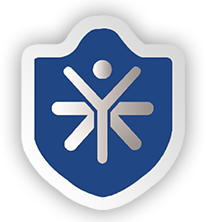An English Language Learner, or ELL, is a student whose home language is not English and needs support learning English.
Identifying English Language Learners
All parents and guardians of newly enrolled students must complete a Home Language Identification Survey to let school staff know which language your child speaks at home.
If your responses show that your child speaks a language other than English at home, the school may give your child the New York State Identification Test for English Language Learners.
This test measures your child’s knowledge of English and shows whether your child needs support programs and services. If the test shows that your child needs support learning English, your child will be identified as an English language learner.
Staff
In English Language Arts (ELA) students learn to become effective readers and writers. Teachers use a balance of complex fiction and non-fiction texts in the classroom and teach reading, writing, vocabulary and discussion with an emphasis on using details and evidence from the text.
Reading
Independent reading can transform students’ understanding of themselves and the world they live in. Independent reading should be a place where joy and learning come together. While students should work to grow and read increasingly complex texts, we also want them to develop a love of reading.
Writing
We live in an age of email and digital texts, which means writing skills are more important than ever. Because writing is so important in higher education and in the workplace, students must be able to communicate well using many forms of writing, such as:
- editorials
- presentations
- reports
- research
- proposals
- memos
- literary analyses.
Teaching students to express themselves creatively is equally important. While only a handful of students may become professional writers, learning to write fiction, poetry, and narrative nonfiction offers them new ways to think, share, and reflect on the deeper questions of life.
Vocabulary
Learning new words—vocabulary—is one of the most important parts of becoming literate. The larger children’s vocabularies are in the primary grades, the greater their academic achievement will be in the later grades. Vocabulary has a direct relationship with reading comprehension, especially as children move up the grades.
The goal of social studies is to make sure that all students graduate from high school prepared for college, a career, and a future as a productive adult.
Students use rich content, themes and big ideas to learn history, geography, economics, civics, citizenship and government. They also use important skills to “think like historians.”
Teachers also include literacy in the social studies classroom. This helps students use evidence from text when reading, writing, and discussing.
To support teachers and students, the Social Studies Department has produced a curriculum called Passport to Social Studies. New York City educators created it for our students, and it is meant to prepare children for the global community.
Staff
- David Edelman Part. In Government/ Peer Collaborative Teacher P.C.T./Economics
- Karen Mulally Global History/ AP Euro
Students learn mathematics best when they have opportunities to “do math”. Students must work on challenging problems, share their thinking with others, and use their thinking to build and deepen understanding. This process will provide our students with the skills needed to go to college or enter the workforce better prepared.
- Summer Algebra Packet for incoming FRESHMEN
- Khan Academy (Practice and Extra Help) Link opens in a new window
- FREE Online Graphing Calculator
Staff
- Jaemin Song Math, Algebra II/ Precalculus
For information please contact:
The pharmacy program includes a three year sequence, initiating during sophomore year to senior year. The program includes hands on activities allowing students to have a real life experience just like pharmacy technicians. Students interested in the pharmaceutical department are able to venture to universities such as St.Johns University (Partnership with Union Square Academy). Students are also required to take the PTCB (Pharmacy Technician Certification Exam) to become certified pharmacy technicians during their senior year.
All students are curious about the world in which they live, which makes them natural scientists. Science helps them make sense of the world around them. It provides opportunities for students to investigate this world and explain how and why things happen. As they engage in the work of scientists, they
- observe
- ask questions
- collect data
- construct explanations
- predict
- experiment
- reach conclusions, and
- communicate their discoveries
Staff
- Daniel Rivera Living Environment
For information please contact:
- Coral Tolisano Special Education


